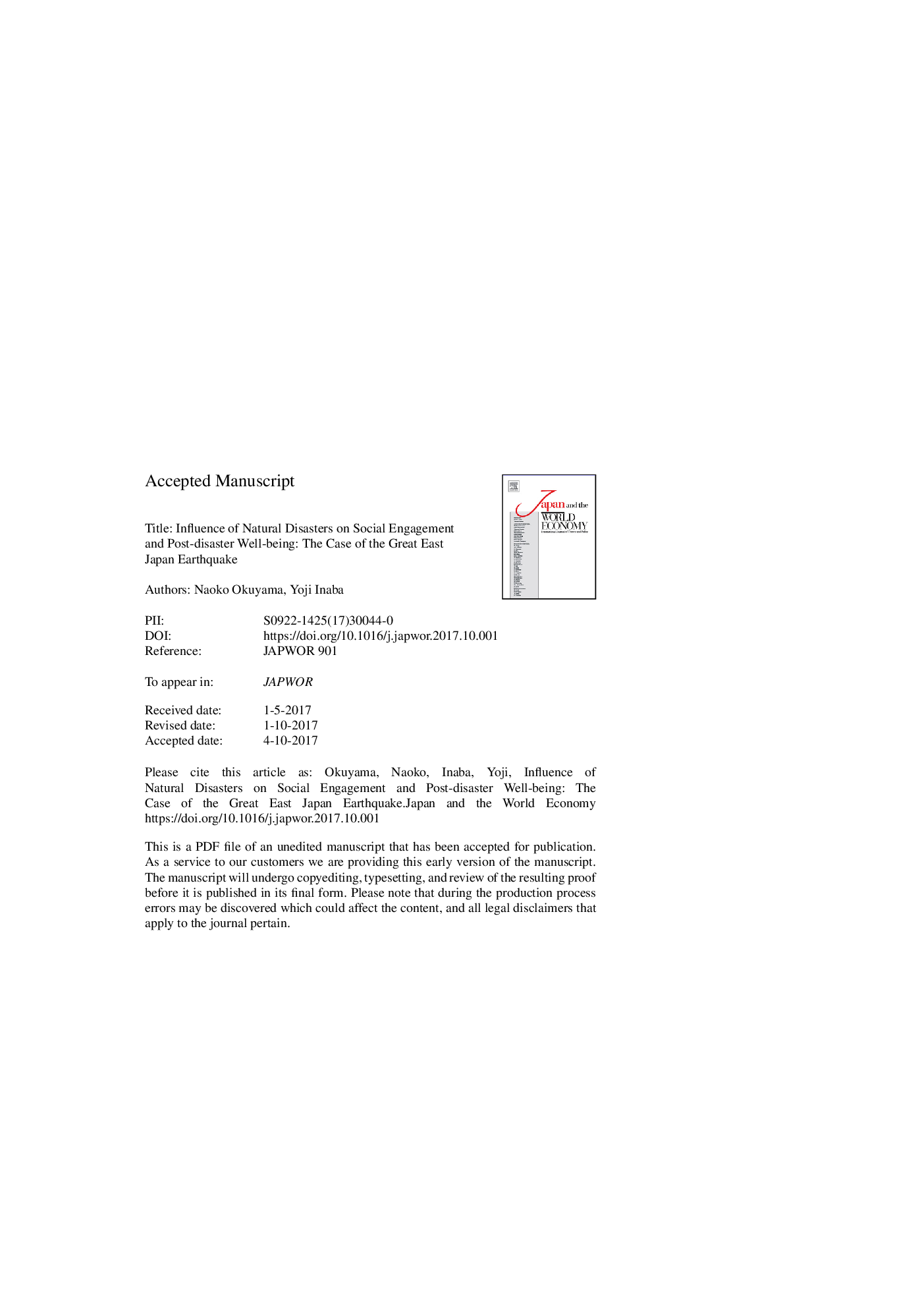| Article ID | Journal | Published Year | Pages | File Type |
|---|---|---|---|---|
| 7356003 | Japan and the World Economy | 2017 | 48 Pages |
Abstract
In addition to multi-faceted damages and losses, natural disasters can alter the conditions of social capital resources by affecting people's attitudes and perceptions. We challenged empirical investigations to explore this issue by focusing on social engagement in the post-disaster period of the Great East Japan Earthquake, March 2011. Two main research topics are addressed: the influence of natural disasters on social engagement and that of social engagement on post-disaster subjective well-being. Crucial findings of our analysis include that daily interactions with neighbors, friends, and acquaintances are lower among those who suffered less damage than those who suffered the most. On the other hand, formal participation in local collective groups is higher among those who were most devastated by the disaster. The analysis of the second topic revealed that interactions with neighbors, friends, and acquaintances affected by the disaster relate positively to subjective well-being proxied by life satisfaction among those affected by damages with a considerable monetary impact.
Keywords
Related Topics
Social Sciences and Humanities
Economics, Econometrics and Finance
Economics and Econometrics
Authors
Naoko Okuyama, Yoji Inaba,
